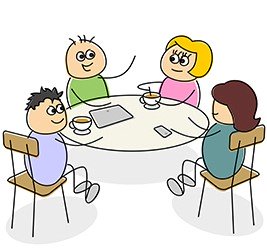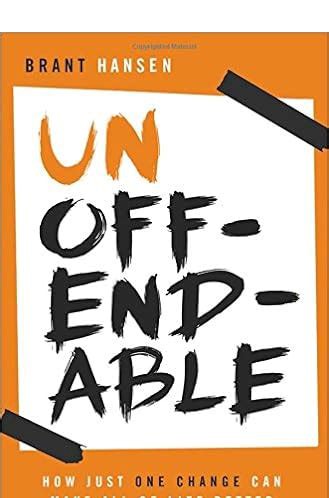Herds – A Melting Pot Story

Herds – A Melting Pot Story
The greatest advantage to living in North America is the melting pot syndrome. People of every ethnicity and culture are thrown together in random order and whatever happens, just happens. Sometimes things go well, and cultures cross-pollinate to synthesize new creations. Tex-Mex food is a perfect example. It’s not really authentic Mexican food, nor is it traditional Americana but could any normal person survive a whole week without Taco Tuesday?
But the thing about a melting pot is that it’s, by nature, uncomfortable to the elements being melted. Conflicts arise because nobody wants to undergo the discomfort of merging. Over the past few decades, relativistic concepts of truth have divided a once cohesive, multi-colored society into protective herds — the idea being that truth is not absolute. Rather, it’s something defined by what the majority believes.
Herds offer the security of like-minded individuals with similar concepts of truth. They also provide the convenience of labeling non-herd members as “other” and relegating them to a lower class of humanity which can more easily be disrespected (whether we admit that to ourselves or not).
Sometimes, circumstances force us into the proximity of “others” with whom we share few common perspectives. This is one of those stories. It’s about three disparate individuals.
Beatrice
Beatrice, or “Bea” as her friends call her is a black female in the prime of her life, most of which has been spent in Southern Arkansas. She has, in fact, spent her entire existence surrounded by other individuals of varying personalities and IQs but all of the same color and culture. Bea thinks of herself as being sassy although her closest relatives and acquaintances consider her to be belligerent and aggressive.
Bea considers herself to be liberal and accepting of others — with exception of the “others” that current circumstances are forcing her to deal with. One of those “others” is Maryanne, a white female about Bea’s same age but with no clue about what’s important to Bea and apparently no desire to find out. In Bea’s opinion, Maryanne is a narrow-minded, redneck Okie.
The other major irritant in Bea’s life right now is Samuel, a dumb-ass brown immigrant from down South who keeps physically rubbing up against her. She would consider it sexual harassment except for the fact that “Sammy” as she has begun to think of him, is seriously effeminate, maybe even a little queer. At any rate, Bea is on the verge of kicking the crap out of Sammy.
Mary
Maryanne is also in her prime. She grew up in a small, conservative farming community and, like Beatrice, has always been surrounded by friends and family her own color. She cannot relate in the least to Beatrice or Samuel. In fact, Maryanne is quite proud of her lengthy heritage, traceable back through several generations of white European ancestry.
Due to her upbringing, and possibly some genetic influences, Maryanne very much prefers the company of women — although Beatrice is starting to test that preference. Samuel is just a chauvinistic nuisance at the moment and Maryanne avoids him by directing all of her comments to Beatrice who may be obnoxious but at lease is not a man.
Maryanne’s biggest problem is that she hates crowds and tight spaces, both of which dominate her current situation. There are so many individuals in the auditorium that the smell of body odor is beginning to permeate the atmosphere. Was that feces she just stepped in? There are a multitude of white females in the room, but the movement of the crowd always seems to prevent her from maneuvering into a large group she can relate to.
Samuel
Samuel, or “El Jefe” as he prefers to be called, once led a fantastic life. Hailing from South Texas, he comes from the land of wide-open spaces and machismo. El Jefe has managed to have sex with a very large percentage of the females he’s ever met. As a Texan, he naturally considers himself (and those like him) superior to everyone else in the room, especially these two snotty bitches to his left.
But today, El Jefe is angry. He’s angry towards a society that sees only his appearance and ignores his other qualities. He’s angry that these two “cows” fail to recognize his superior masculinity, and he’s angry as Hell about the circumstances of his life.
The biggest injustice is how El Jefe has been treated by the rural rednecks he’s encountered. Only three months ago, El Jefe was hiking alone near the Rio Grande when four of those rednecks surrounded him and attacked. He did some serious damage to one of those punks but the other three managed to get the best of him.
Either as payback for his resistance or just because they were different from him, the three punks held El Jefe down and actually castrated him with a huge, filthy knife. He’d never felt more pain in his life and since that time he’s experienced a host of humiliating side effects. How could there be a God who allows stuff like this to happen?
The Endgame
None of the trio have ever managed to enjoy a life outside their own biases or the false security of their own herds. They are unhappy with the melting pot to say the least.
At some point, the jostling of that great throng forces them all three up against a barred gateway. As they are pressed against the bars, panic sets in but only Beatrice manages to look up and notice the slaughterhouse technician just before his air hammer contacts her bovine forehead and everything goes black.
We’re all headed in the same direction. Perhaps it’s time to leave the security of our herds and start acting like intelligent, compassionate humans instead of cattle before that final hammer falls.
Let’s get together for coffee and have an oral conversation that I can then go off and distort when I write about it. What do you have to lose (other than your reputation). I’ll even pay for the coffee.
 Let’s talk. I’d really like to hear what you have to say, and it might even give me something to write about. Email me at guy@lawsoncomm.com.
Let’s talk. I’d really like to hear what you have to say, and it might even give me something to write about. Email me at guy@lawsoncomm.com.
I’ll buy you coffee and we can compare notes. I promise not to steal your ideas without permission.
![]()
 Anger is extraordinarily easy. It’s our default setting. Love is very difficult. Love is a miracle.
Anger is extraordinarily easy. It’s our default setting. Love is very difficult. Love is a miracle.
― Brant Hansen, “Unoffendable”

Did someone forward this newsletter to you after reading it themselves? Don’t settle for that!
CLICK HERE
to get a fresh, unused copy of this newsletter sent directly to you every Sunday morning. If you decide it stinks, you can always unsubscribe.

Unoffendable
— Brant Hansen
I went on a long road trip last week and was able to listen to two full books and half of a third one. Neither of the first two came near the quality of “Unoffendable”. If you didn’t take my advice to read it when I first mentioned it a year ago, there’s still time to encounter the truths of this great book, and I guarantee it will make the rest of your days much more enjoyable. If you can get the Audible version, do so because his narration is superb and adds to the experience.
A meeting of great minds who think alike












